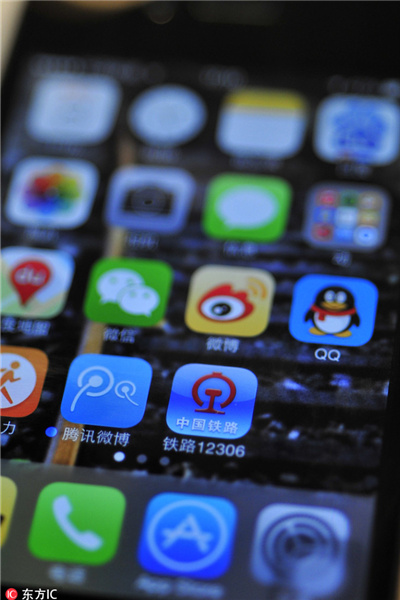We need special law to protect users' data


Editor's note: A public debate is still raging on whether Tencent and Alibaba, developers of popular mobile apps WeChat and Alipay, respectively, have the right to infringe on users' privacy, even after Tencent denied it stores users' chat records, and Alibaba apologized for deceiving users into authorizing it to store their data. Do we need legislation to prevent illegal access to and misuse of people's private information? Three experts share their views on the issue with China Daily's Zhang Zhouxiang. Excerpts follow:
No real protection for smartphone users
WeChat said they "do not keep the chat records of users". We are not sure about that, but we are sure that they can do so whenever they want to.
A simple test will show how. If someone sends you a message while your smartphone is turned off, you will still get that message when you turn it on again. During the intervening period, the information was stored on WeChat servers.
Besides, WeChat used to publish commercial advertisements in "moments" that suited each user's habits. There is only one known way of doing that, big data analysis, which involves collecting users' information, names, addresses, spending habits and so on and analyzing them to reach certain conclusions.
There are many P2P (point-to-point) data transferring technologies that allow one person to directly send a piece of information to another without going through any public server. But since such technologies are very costly, they can't be promoted for commercial use, at least for now.
China plans to make it mandatory for IT companies to apply for special registration if they want to put users' data to commercial use. That will help protect users' data from being misused by big technology firms for profits.
Liu Quan, a senior researcher in cybersecurity at the China Center for Information Industry Development affiliated to the Ministry of Industry and Information Technology


































